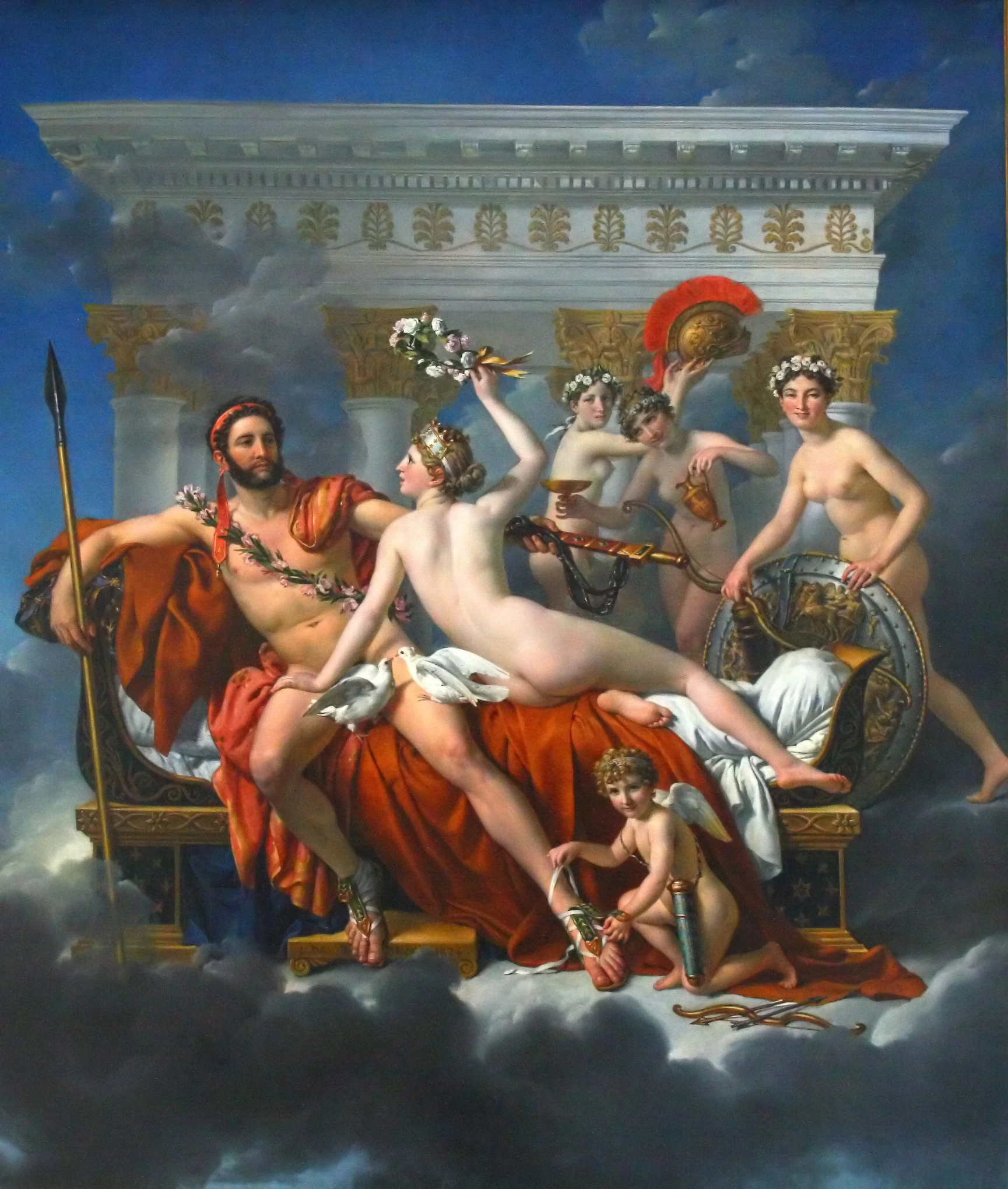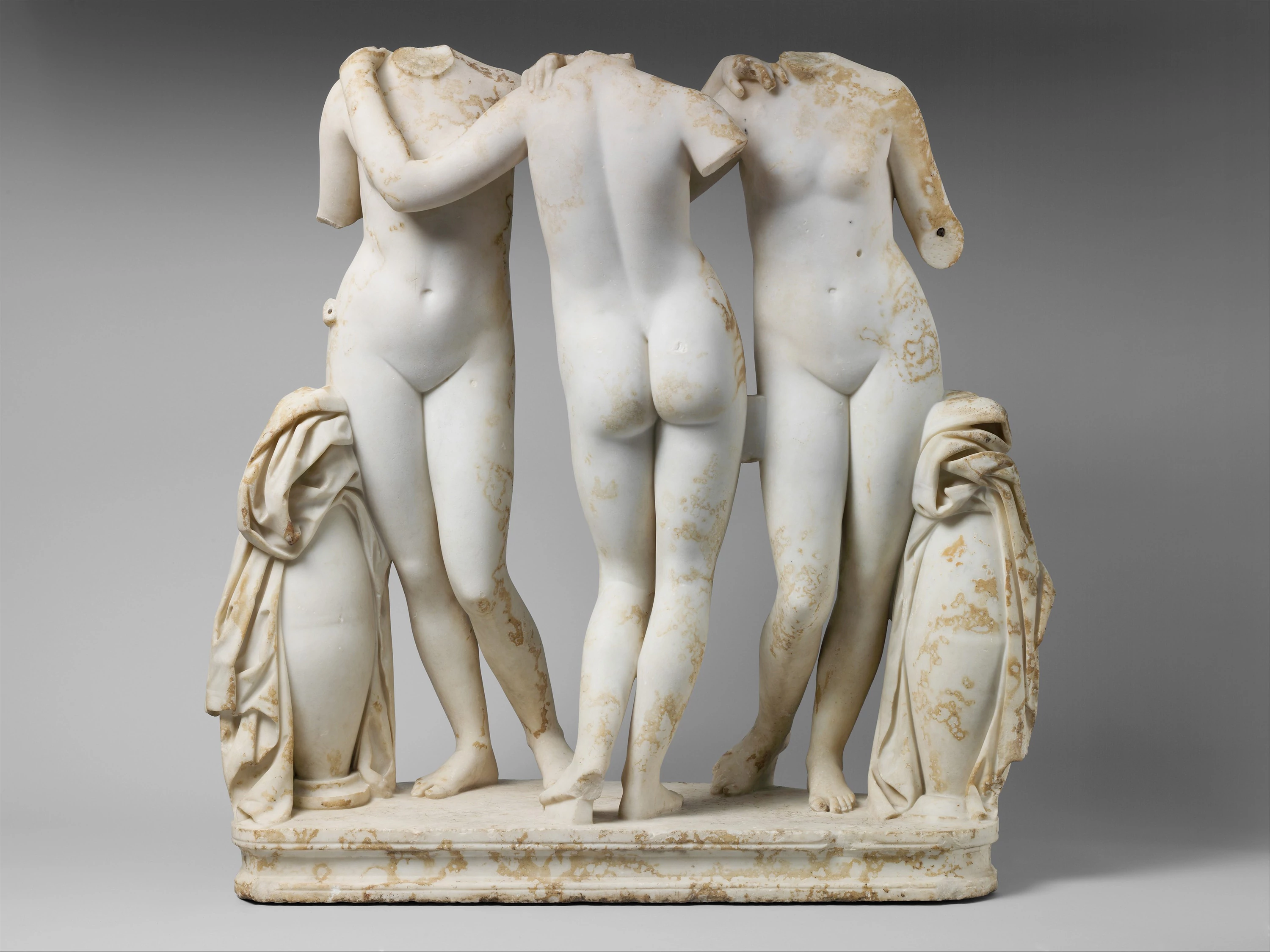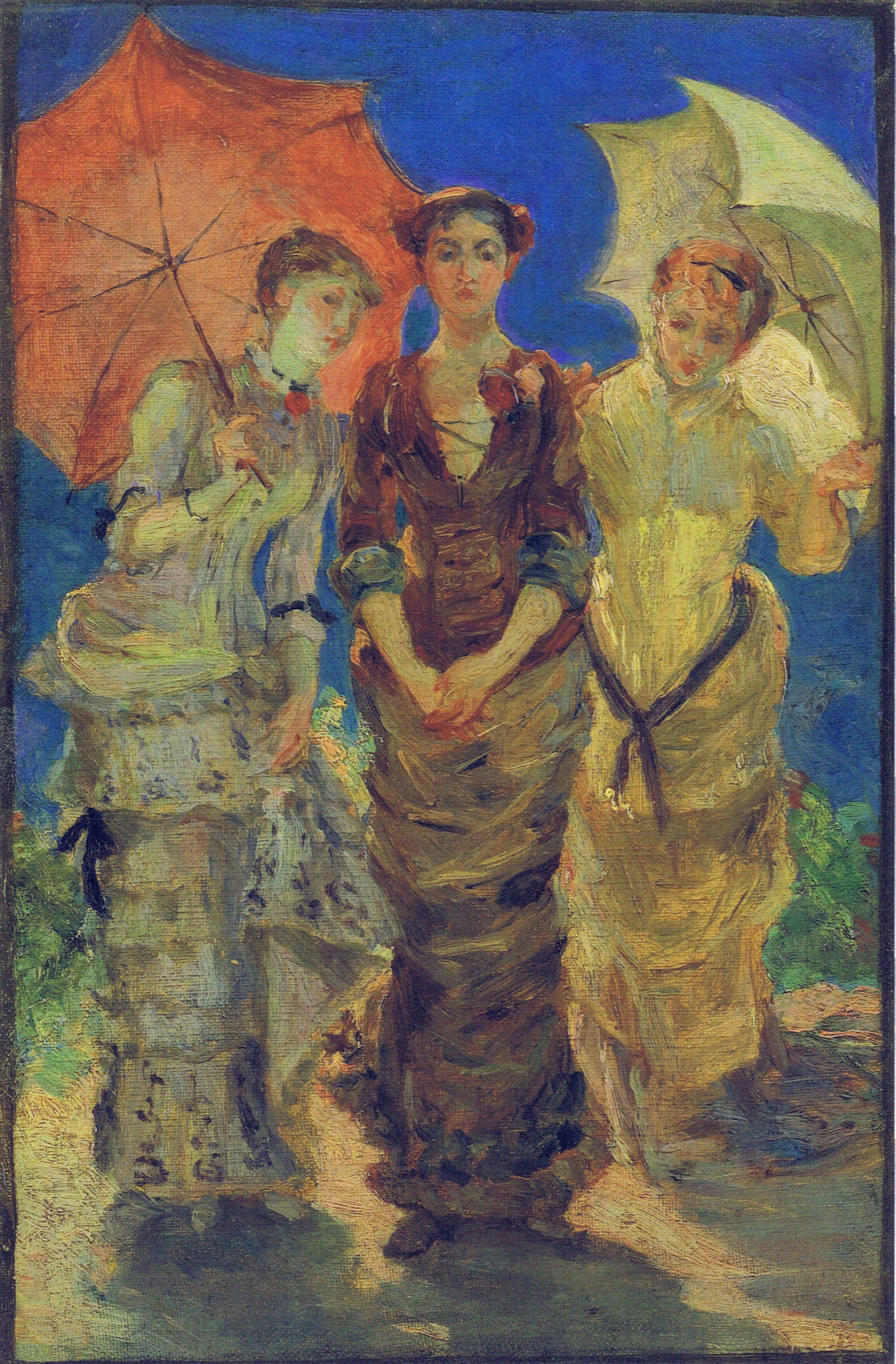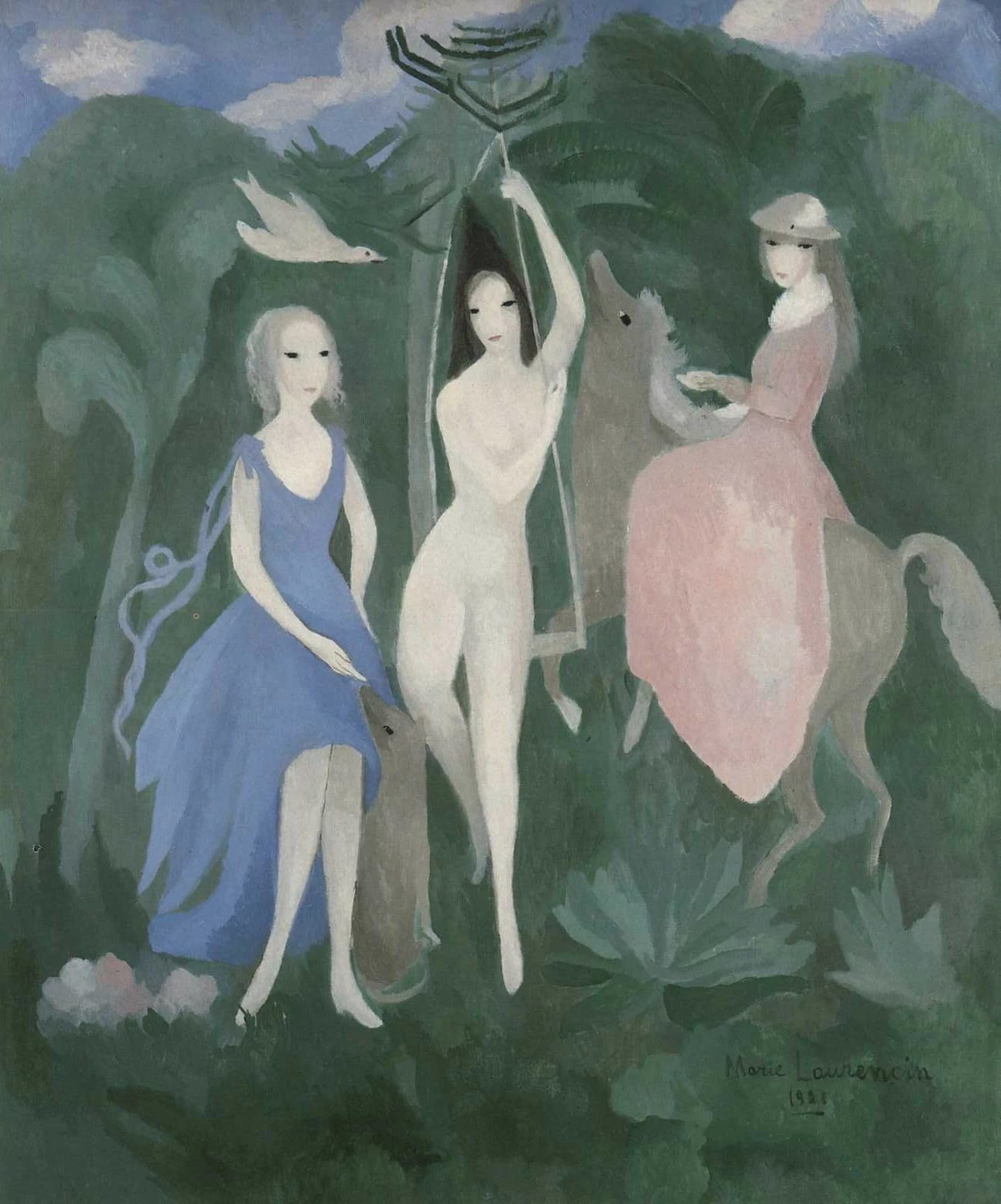
Mars Disarmed by Venus and the Three Graces Jacques-Louis David, 1822 – 1824

The Three Graces 200CE

The Three Graces Marie Bracquemond, 1880

In the ancient culture of Greece, among a myriad of gods and goddesses, it was believed that three young women called the charities guided the positive elements of human nature. The women, sometimes described as the daughters of Zeus or Dionysus, were named Aglaea, meaning splendor, Euphrosyne, mirth, and Thalia, good cheer. Together they were the sponsors of charm, beauty, nature, creativity, and fertility. When Roman culture subsumed the Greek city-states, the charities were adopted as The Graces, and the goddesses lived on. They reappeared again during the Italian Renaissance, with the popularity of allegorical paintings and the rediscovery of classical Roman myth, and continue to be a popular subject through the modern era.



